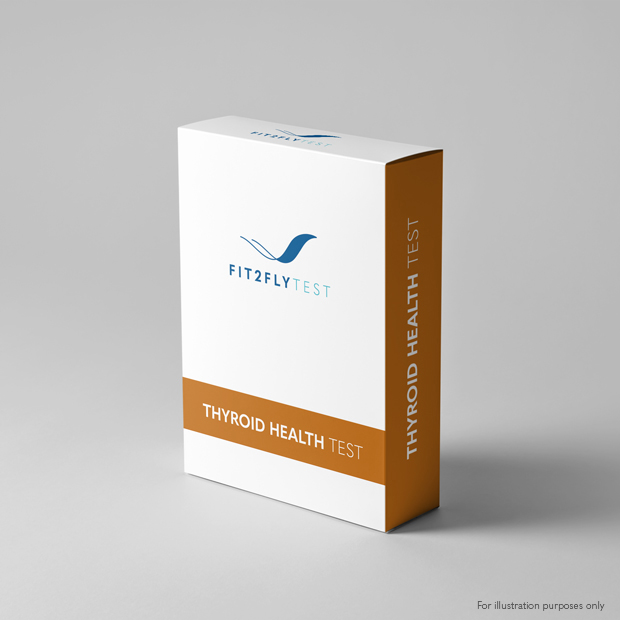In this guide to thyroid health, we will look at the thyroid gland, how it works, and what the thyroid gland (TSH) test is used for.
What is the thyroid gland?
The NHS defines the thyroid gland as “a small butterfly-shaped gland in the neck, just in front of the windpipe (trachea).”
What does the thyroid gland do?
The thyroid gland is responsible for producing the hormones that help to regulate your body’s metabolism – which is the process that turns food into energy. These hormones are called triiodothyronine (T3) and thyroxine (T4).
If the thyroid gland does not produce enough T3 and T4, then many of your body’s functions may slow down.
Did you know that thyroid disease affects 1 in 20 people in the UK and is ten times more common in women than men?
What does the thyroid health test (TSH) do?
The usual blood tests used for thyroid function are TSH, T4 and T3. In most cases, your TSH level will be the first thyroid gland hormone to be tested, as if this comes back with a normal result, your thyroid is likely to function normally.
At Test2Go, we offer a reliable and straightforward finger prick blood spot thyroid health (TSH) test that shows if your TSH levels are normal or high.
If the test comes back positive, then your TSH level is over five mU/I (milliunits per litre), then it is likely you have an underactive thyroid (hypothyroidism). You should therefore consult your doctor so that they can decide whether any additional investigation should be performed.
What is hypothyroidism?
Hypothyroidism is another name for an underactive thyroid gland, which means it is not producing enough hormones. The symptoms of hypothyroidism include:
- becoming forgetful and sometimes depressed
- constipation, weight gain, dry skin and brittle hair
- feeling cold, tired and lethargic
- Women may also experience menstrual irregularities
There is no way of preventing an underactive thyroid as, in most cases, it is either caused by:
- damage occurred during some treatments for an overactive thyroid and thyroid cancer
- the immune system attacking the thyroid gland and damaging it
Your doctor may treat your underactive thyroid by prescribing you daily hormone tablets to replace the hormones that your thyroid is not producing enough of.
How does the SELFCheck Thyroid Health (TSH) test work?
The thyroid-stimulating hormone, also known as TSH, is secreted from the pituitary gland to regulate the function of the thyroid. Therefore, a higher than normal TSH level is used to indicate an underactive thyroid gland. A positive result on this test indicates a TSH level of over five mIU/mL, meaning it is likely that you have an underactive thyroid.
When should the thyroid health (TSH) test be used?
This test should be performed if you are suffering from symptoms of hypothyroidism. The test can be taken at any time of day.
This test should not be used if you are currently undergoing hormone treatment for thyroid disease.
What is the accuracy of the SELFCheck Thyroid Health (TSH) Test?
Healthcare professionals have used the thyroid health test that Fit2FlyTest offers in hospitals and laboratories. There is an overall agreement of at least 95.5% compared with reference laboratory methods.
Although this test is reliable, all medical tests may give a small number of false-positive or false-negative results.

Thyroid Health (TSH) Test
A simple and reliable finger prick blood spot health check that shows if your TSH levels are normal or high.
- Results available ‘on the spot’ within minutes
- Confirmatory Laboratory certificate straight to your patient portal
- Free shipping
Further reading:
If you want to find out more about the thyroid gland and related tests, the following resources will be beneficial:
- NHS – Underactive thyroid (hypothyroidism)
- British Thyroid Foundation – What is thyroid disorder



